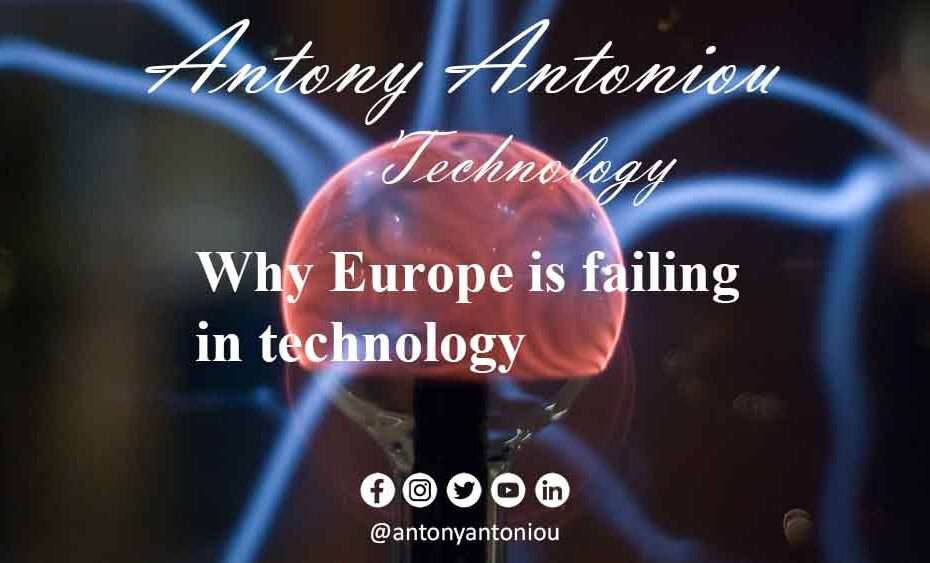Why Europe is failing in technology
The Challenges Facing Europe in the Global Tech Race
Introduction
In the ever-evolving landscape of technology, Europe stands as a paradox. Home to some of the world’s most renowned scientific and technological minds, the continent has struggled to keep pace with the United States and Asia in the global tech arena. While Europe has a rich history of technological innovation, it has faced numerous challenges in recent years that have hindered its ability to produce tech giants capable of rivalling those in the United States and China. In this blog post, we will delve into the factors contributing to Europe’s lag in the tech industry and explore the potential solutions and opportunities that lie ahead.
1. Market Capitalization Disparity
One striking indicator of Europe’s lag in the tech industry is the market capitalization of its top tech companies compared to those in the United States and China. The top tech giants in the United States and China boast staggering combined market capitalizations, while European tech companies fall significantly short. This discrepancy in market capitalization reflects the difference in the scale and impact of tech companies from these regions.
2. Historical Turning Points
Historical turning points have contributed to Europe’s current position in the tech industry. The influx of European talent into the United States during the 20th century, the creation of Silicon Valley, and Asia’s focus on manufacturing and hardware development have all played a role in shaping the global tech landscape.
3. Market Fragmentation
The diversity in languages, cultures, and regulatory frameworks across European countries has fostered innovation but has also hindered the development of a unified tech ecosystem. This fragmentation presents challenges for European tech startups seeking to expand across the continent, in contrast to the homogenous markets in the United States and China.
4. Brain Drain
The Brain Drain phenomenon, where highly skilled European tech professionals migrate to regions like Silicon Valley in pursuit of better opportunities, poses a significant challenge to Europe’s tech industry. Retaining talent is crucial for cultivating a thriving tech ecosystem within Europe.
5. Risk-Averse Culture
Europe’s risk-averse culture, coupled with a preference for traditional career paths, has resulted in fewer investment opportunities for tech startups. This cultural divide has limited the growth of Europe’s startup culture, making it challenging for companies to secure the necessary funding for innovation and expansion.
6. Regulatory Challenges
Stringent data protection laws and complex regulatory environments in Europe, such as GDPR, can create barriers to entry and increase compliance costs for tech companies. Tax regulations, including digital services taxes, have also impacted the growth of tech companies in the region.
Conclusion
Europe’s challenges in the global tech race are multifaceted and complex, spanning market fragmentation, talent retention, cultural factors, and regulatory hurdles. However, despite these challenges, there is hope on the horizon. Initiatives like the European Commission’s Digital Single Market strategy and the European Innovation Council (EIC) are working to remove barriers and provide support for tech innovation in Europe.
Success stories like Spotify and Adyen demonstrate that Europe has the potential to compete on a global scale. By addressing these challenges head-on, Europe can unlock its potential for growth and innovation in the tech industry. The future of Europe’s tech sector is not entirely bleak, but it will require concerted efforts to bridge the gap with the United States and Asia and secure its place in the global tech arena. Europe must rise to the occasion, for the tech race shows no signs of slowing down.

